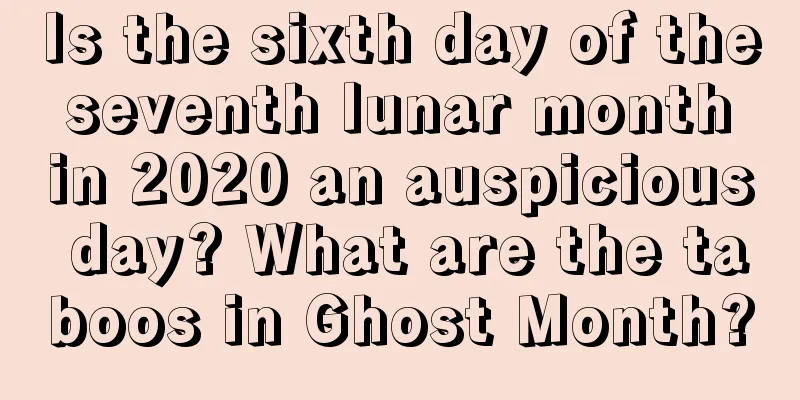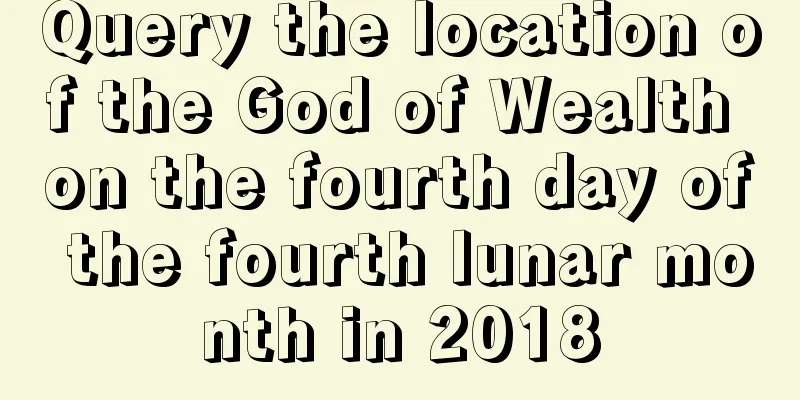What festival is on the eighth day of the first lunar month and what are its customs?

Introduction: The New Year comes in the first month of the lunar calendar, so there are many festivals during the New Year. At the same time, our country is a typical multi-ethnic country with many ethnic groups and different customs and cultures. So, what festival is on the eighth day of the first lunar month? Are there any customs and habits? Now, let’s follow the editor to learn more about it. There is no end to the topics about the Spring Festival, so do you want to know more about it? Just continue to wander in Mr. Shui Mo’s Spring Festival special ocean!What festival is on the eighth day of the first lunar month?The eighth day of the first lunar month is also known as Shunxing Festival, one of the traditional Chinese lunar festivals. The main purpose of this day is to learn about astronomy by reading the names of the stars listed on the star god horse invited from the incense and candle shop. The star worship ceremony of Shunxing Festival is held at night. Rich families put up 108 lanterns, while ordinary families can put up 49 lanterns, and the minimum is 9, representing the nine fortune-telling stars: sun, moon, water, fire, wood, metal, earth, Luo Hou and Ji Du. The lamp bowl is shaped like a small goblet, made of clay or copper, with soybean oil inside, and the wick is made of "lamp flower paper".According to Chinese folklore, the eighth day of the first lunar month is Guzi’s birthday. If the weather is clear on this day, it means a good rice harvest this year; if it is cloudy, it means a poor harvest. What are the customs and habits on the eighth day of the first lunar month?Cham ValleyChinese people believe that if the weather is good on this day, there will be a good rice harvest that year, but if the weather is bad, there will be a poor harvest that year.OpeningSome shopping malls or shops opened today, mainly to represent the meaning of "prosperity". May your business prosper and you be prosperous all year round.Star ReceptionThe Chinese people regard the eighth day of the first lunar month as the day when all the stars descend to the earth. They make small lanterns and light them to offer sacrifices to them, which is called "Shunxing", also known as "offering sacrifices to the stars" and "receiving the stars".According to Taoism and astrologers, each person has a star in charge every year, also called the "annual star" (the nine stars, namely Sun, Moon, Mercury, Mars, Wood, Venus, Saturn, Luohou and Ketu, take turns to be in charge of the year). A person's fate for the year is entirely controlled by the star in charge of the year. The eighth day of the first lunar month every year is the day when all the star gods gather, and it is also said to be the day when "all the stars descend to the world". Therefore, by offering sacrifices to the star god (i.e. Shunxing) on this day, it is possible to obtain the star god's blessing. Therefore, some people go to the Baiyun Stargazing Temple (also known as the Yuanchen Temple) to burn incense and pray to the stars. But no matter whether one goes to the temple to burn incense or not, on that evening, after all the stars come out in the sky, every family will hold a star-following sacrificial ceremony. Two god codes are used in sacrifice. The first one is printed with Xingke, Suzaku, Xuanwu, etc., and the second one is "Benming Yannian Shouxingjun". The two pieces were put together front and back, clamped on a paper clip, and placed in the middle behind the table in the courtyard for worship. In front of the god's code, there are lamp flowers made of yellow and white lamp paper soaked in fragrant oil, which are placed in a "lamp bowl" with a diameter of about an inch and lit. Then serve cooked Yuanxiao and tea. After dusk, sacrifices are made to the Big Dipper. After the sacrifice, when the remaining lights are about to go out, burn the god code, incense roots, sesame straw, and pine and cypress branches together to complete the sacrifice. Summary: Through the above article content, we know about the origins of the festival on the eighth day of the first lunar month and some of its customs and habits. I hope these contents can provide you with some new knowledge. I wish you all a new start in the new year, good luck and happiness! After reading this article, there are more exciting content in the Spring Festival special topic, let’s take a look! |
<<: What are the customs and taboos on the fifth day of the Lunar New Year?
Recommend
Are there any days in the tenth month of the lunar calendar in 2019 that are not suitable for renovation and groundbreaking?
Are there any days in the tenth month of the lunar...
Is it a good idea to open a new store on December 28th of the lunar calendar in 2019?
It is said that to do business, you need to have ...
Is it not suitable to start construction on the second day of Grain in Ear in 2020? What are the criteria for ending the plum rain season?
Introduction: 2020 is destined to be a different y...
The Feng Shui of the Yin House and Cemetery, How to Look at the Feng Shui of the Cemetery
The place where the coffins of ancestors are buri...
Fortune telling and zodiac analysis for girls born on June 8, 2020!
Introduction: A new life is born every day, and th...
What is the fate of people born on the Ghost Festival under the sign of Rat? When is the Ghost Festival?
The Zhongyuan Festival is also known as the Ghost ...
Is the eighth day of the fifth lunar month in 2021 a good day? Can I make a bed?
Good or bad days are different every day. Some day...
Which zodiac signs will conflict with the heavy snow in 2020? Which zodiac signs are not suitable for getting married on January 20?
Introduction: You also need to choose an auspiciou...
Is the Dragon Boat Festival on May 5, 2020 a good day? Why is the Dragon Boat Festival also the Girls' Day?
Introduction: Every day has its good and bad days,...
What date is September 25th in the lunar calendar 2017? What day is it?
It is such a deep autumn, so golden, and so fruit...
Is the ninth day of May 2020 suitable for relocating graves? What should be paid attention to when relocating graves?
Introduction: You need to choose an auspicious day...
Analysis of the Feng Shui effect and breeding of dragon fish
Introduction: What is a dragon fish? Arowana, also...
Detailed explanation of the lunar calendar for May 24, 2020
Detailed explanation of the lunar calendar for Ma...
The second day of the twelfth lunar month in 2018, is it a good day?
The twelfth month of the lunar calendar is the tw...
What zodiac sign do people born on October 18th of the lunar calendar in 2019 belong to? Are they compatible with Cancer?
Each constellation depicts a personality, and ther...









